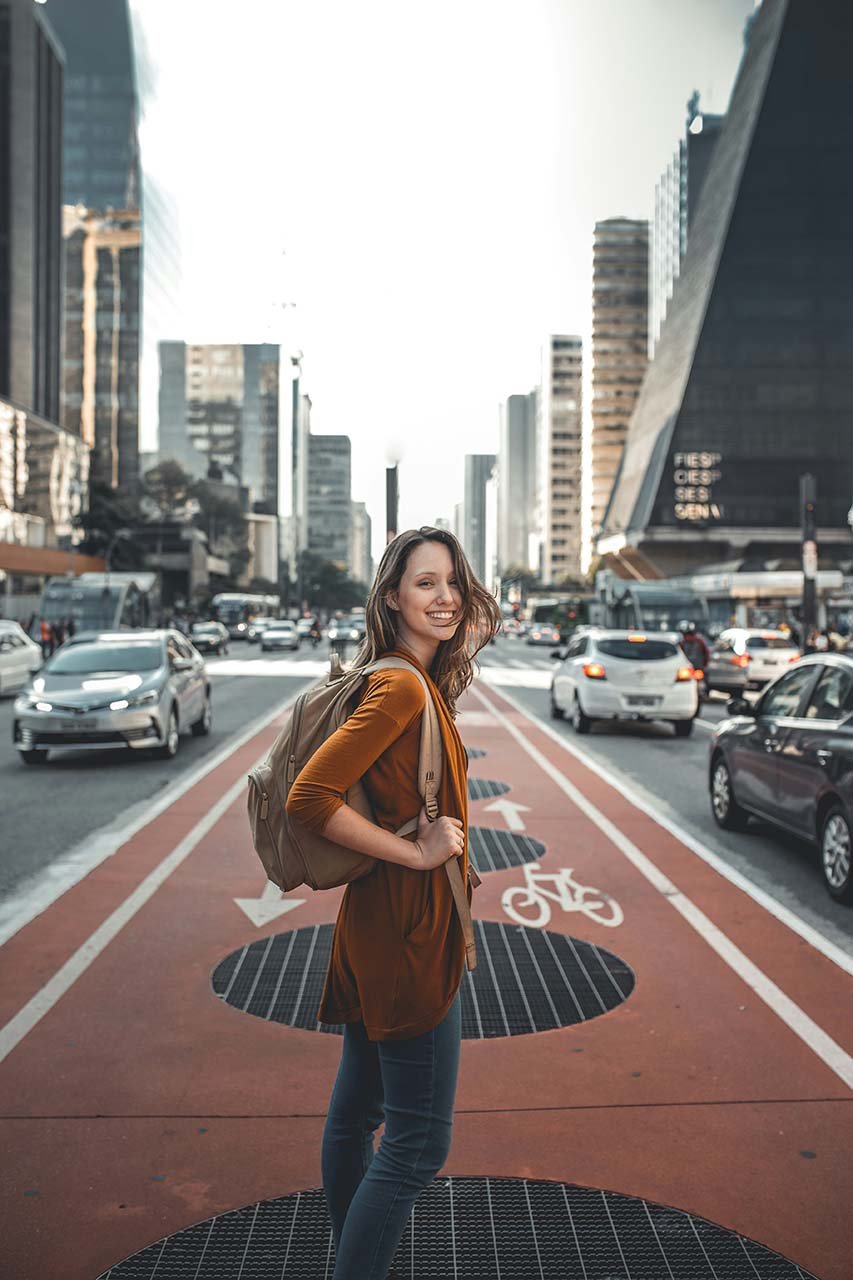When it comes to travel, whether you’re a seasoned tourist or a weekend adventurer, the right backpack can make all the difference in your trip experience. A well-selected backpack is more than just a bag; it’s your reliable travel partner, holding all your essentials, providing comfort, and making sure that your journey is smooth and hassle-free. But what should a traveler’s backpack really look like? Let’s dive into the key features that make a backpack perfect for traveling.
1. Size and Capacity
Your backpack’s size is perhaps the most important factor to think about. It should be large enough to carry all your necessities but not so large that it becomes bulky.
Carry-On Compatibility: For many travelers, especially those who prefer air travel, a backpack that complies with airline carry-on size restrictions is perfect. This typically means a capacity of 30 to 45 liters, which is sufficient for a weekend trip or even a minimalist extended journey.
Expandable Options: Some backpacks offer expandable sections, allowing you to increase capacity when needed. This is handy for those moments when you pick up a few extra souvenirs.
2. Comfort
Traveling often involves long hours of walking, standing, or waiting, so comfort is important.
Padded Straps and Back Panel: Look for a backpack that has a back panel and shoulder straps that are well-padded. These features distribute weight evenly and prevent strain on your shoulders and back.
Adjustable Harness System: A good backpack needs to have a sternum strap and a waist belt that can be an adjustable harness system. These help stabilize the load and keep the backpack close to your body and reducing fatigue.
Breathable Material: A back panel made of breathable mesh fabric will help reduce sweating and keep you more comfortable during long treks or warm climates.
3. Durability
Travel backpacks need to withstand the rigors of different environments, from airport conveyor belts to rugged outdoor trails.
Material Quality: Look for a backpack made from high-quality, long-lasting materials like nylon or polyester. Seek out water-resistant fabrics that can protect your belongings in light rain. Some backpacks come with a built-in rain cover or have water-repellent coatings for more intense weather conditions.
Reinforced Seams and Zippers: In a badly made backpack, the zippers and seams frequently break first. Longevity is ensured by double stitching and premium zippers (such as YKK zippers).
4. Organization
A well-organized backpack can save you a lot of time and irritation by allowing you to access your belongings quickly.
Multiple Compartments: Look for a backpack with various compartments and pockets on both inside and outside. This keeps your belongings accessible and well-organized. If you travel with a computer, think about getting a dedicated laptop compartment.
Front-Loading Design: Unlike traditional top-loading backpacks, front-loading (also known as panel-loading) backpacks open up like a suitcase, giving you easier access to your items without having to dig through everything.
External Pockets: External pockets are great for storing items you need on the go, such as a water bottle, map, or snacks. A backpack with hidden pockets can also help keep your valuables safe from pickpockets.
5. Security Features
When traveling, especially in unfamiliar places or in foreign areas, security is a significant issue.
Lockable Zippers: Lockable zippers provide you to secure your main compartments, deterring thieves and giving you peace of mind in crowded areas.
RFID Blocking Pockets: If you carry credit cards or passports with RFID chips, a backpack with RFID-blocking pockets can protect your sensitive information from digital theft.
Secret pockets or Compartments: Some backpacks come equipped with hidden pockets or compartments where you can conceal cash, passports, or other valuables, keeping them out of sight and reach of potential thieves.
6. Weight
The weight of your backpack when empty is an often overlooked factor, but it can make a significant impact during long trips.
Lightweight Materials: Choose a backpack that is lightweight yet durable. Advanced materials such as ripstop nylon provide strength without adding unnecessary weight.
Minimalist Design: Some travelers prefer a more minimalist approach, choosing a backpack that refuses unnecessary bells and whistles to focus on essential features, thus keeping the weight down.
7. Style
While function should be your top priority, style shouldn’t be overlooked. After all, you’ll be carrying your backpack everywhere, and it’s nice to have one that reflects your personal taste.
Versatile Design: Choose a design that fits your style but is also versatile enough for different environments, from urban streets to hiking trails.
Color Choices: While black and gray are popular for their ability to conceal dirt and wear, think about choosing a backpack with a unique color or pattern to stand out among other bags.
8. Accessibility
It is essential to have easy access to your belongings, especially when you’re traveling.
Quick-Access Pockets: Pockets for essentials such as your phone, wallet, or travel documents should be easily accessible without needing to take off the backpack.
Side Access Zippers: Some backpacks have side zippers that make it easy to reach the main compartment without fully opening the bag, which is convenient during transit.
9. Versatility
A decent travel backpack should be versatile enough to fit in different types of trips.
Convertible Designs: Some backpacks can convert into duffel bags or have detachable daypacks, providing multiple carry options for different situations.
Modular Systems: Some brands offer modular systems, where you can add or remove extra pockets or compartments depending on your needs.
10. Price
Finally, price is always a consideration. Although a more expensive backpack often offers better quality and more features, there are also many budget-friendly options that provide excellent value.
Budget Considerations: Set a budget based on how often and where you travel. If you’re a frequent traveler, investing in a high-quality backpack will pay off in the long run.
Warranty and Repair Options: Take into consideration brands that provide warranties or repair services, ensuring that your investment lasts for years to come.
A good backpack might be your Perfect Travel Companion. Choosing the right backpack for travel is a balance between size, comfort, durability, and features. Whether you’re backpacking across Europe, exploring the jungles of South America, or simply heading out for a weekend getaway, the perfect backpack will serve as your reliable partner, making your journey smoother and more enjoyable. Take the time to assess your needs, try on different options, and invest in a backpack that will carry you through countless adventures.


